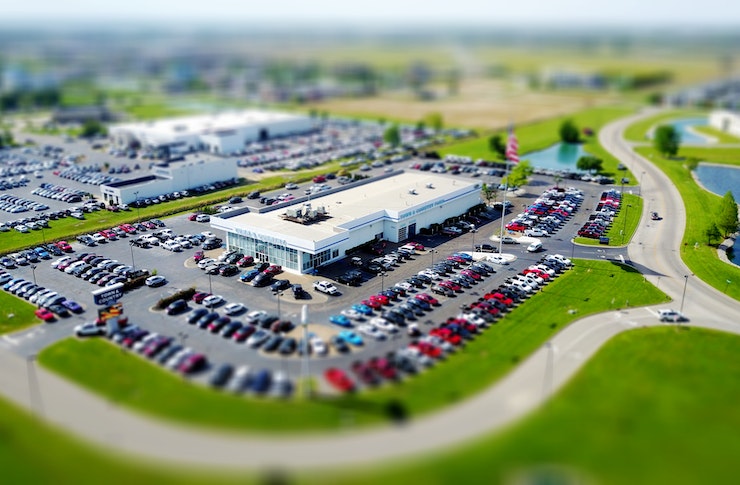Understanding Food Packing Jobs: Opportunities, Benefits, and Career Insights
Food packing jobs play a crucial role in the food industry, ensuring products are safely packaged and ready for distribution. This article explores the various aspects of food packing jobs, including their benefits, salary expectations, and notable employers in the field.

Food packing roles represent an essential component of the food manufacturing and distribution industry. These positions involve the preparation, assembly, and packaging of food products to ensure they reach consumers in optimal condition. From fresh produce to prepared meals, food packers play a vital role in maintaining product quality, safety, and presentation. While sometimes perceived as straightforward work, the food packing industry encompasses diverse responsibilities, skill requirements, and potential career development paths worth exploring.
What Exactly Are Food Packing Jobs?
Food packing positions encompass a range of responsibilities centered around preparing food items for distribution and sale. Workers in this field may sort, clean, inspect, weigh, and package various food products according to established specifications. The specific duties vary based on the food type and company needs, but typically include operating packaging machinery, maintaining clean work environments, conducting quality control checks, and ensuring compliance with food safety regulations.
Food packing positions exist across multiple settings, including:
- Food manufacturing plants
- Fresh produce facilities
- Meat and seafood processing centers
- Bakery operations
- Ready-meal production facilities
- Distribution warehouses
These roles serve as the critical final step before products reach retailers and ultimately, consumers’ tables. The work environment is typically fast-paced and may involve assembly line processes, especially in larger operations.
What Skills Are Required for Food Packing Jobs?
Certain skills and attributes contribute to success in this field. Key requirements typically include:
-
Physical stamina and dexterity: The ability to stand for extended periods, lift moderate weights, and perform repetitive motions efficiently.
-
Attention to detail: Ensuring proper packaging, accurate labeling, and adherence to quality standards.
-
Basic mathematical skills: For weighing products, counting inventory, and understanding proportions.
-
Food safety awareness: Understanding of hygiene protocols and contamination prevention measures.
-
Teamwork abilities: Collaborating effectively with colleagues in often fast-paced environments.
-
Time management: Meeting production quotas and deadlines while maintaining quality standards.
More specialized roles may require additional qualifications such as forklift operation certification, knowledge of specific packaging equipment, or familiarity with food safety regulations like HACCP (Hazard Analysis Critical Control Point).
What Are the Benefits of Part-Time Food Packing Jobs?
Part-time food packing positions have several characteristics that distinguish them from full-time roles:
Schedule structure: Food packing facilities often operate multiple shifts, creating various schedule patterns throughout the week.
Experience building: These roles can provide experience in food handling, safety protocols, and manufacturing processes that can transfer to other industries.
Industry exposure: Part-time positions can offer insights into food production and manufacturing operations.
Seasonal variations: During peak production periods, activity in these environments may increase, reflecting the cyclical nature of food production.
Skill development: Workers can develop abilities in areas such as quality control, equipment operation, and understanding regulatory compliance.
The structure of part-time work in this field varies considerably depending on the specific company, product type, and regional practices.
What Can One Expect in Terms of Food Packing Work Environments?
Work environments in food packing can vary significantly based on several factors, including geographic location, company size, facility type, and specific product focus. Different positions within the field may involve varying levels of responsibility and working conditions.
The food packing industry includes numerous roles with different focuses, such as general packing, quality inspection, machine operation, and team coordination. Each position typically has its own set of responsibilities and requirements, creating a spectrum of possible work experiences within the broader field.
Compensation structures in this industry are influenced by multiple factors including regional economic conditions, company policies, and industry standards. The field generally follows standard labor practices regarding working hours, breaks, and workplace conditions as regulated by local labor authorities.
What Are Some Unique Aspects of Working in Food Packing?
Food packing positions possess several distinctive characteristics that differentiate them from other manufacturing or production roles:
Seasonal patterns: Many food packing operations experience cyclical patterns based on harvest times or holiday demands, creating variation in workflow throughout the year.
Hygiene protocols: Due to food safety requirements, workers adhere to cleanliness standards, including wearing specialized clothing, hairnets, gloves, and following specific sanitation procedures.
Temperature-controlled environments: Depending on the food product, packing may occur in refrigerated or even freezing conditions to maintain product freshness and safety.
Product variety: Workers often handle different food items throughout the year, providing variety in daily tasks.
Quality assurance focus: Unlike some production environments, food packing places significant emphasis on product appearance, consistency, and safety, requiring continuous attention to detail.
Cultural diversity: Food packing workforces often represent diverse cultural backgrounds, creating multicultural work environments.
Many in this field note the tangible nature of food packing work – seeing physical products completed and understanding their contribution to the food supply chain provides a clear connection to the end result.
Food packing roles, while sometimes overlooked, represent an important segment of the food production industry. The field encompasses various skill requirements and work environments, from entry-level tasks to more specialized responsibilities. Understanding the nature of these positions provides valuable insight into an essential component of the food supply chain and manufacturing sector as a whole.




